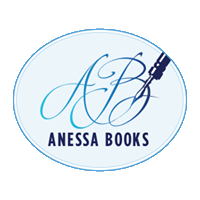 James Scott Bell, begins his book The Last Fifty Pages, with the quote by Mickey Spillane: “The first page sells that book. The last page sells your next book.” I love that quote and it’s so very true. It’s also very true that endings are hard. Damned hard!
James Scott Bell, begins his book The Last Fifty Pages, with the quote by Mickey Spillane: “The first page sells that book. The last page sells your next book.” I love that quote and it’s so very true. It’s also very true that endings are hard. Damned hard!
We work to get the beginning of a book just right. We capture that reader, grab them by their eyeballs and say “You have got to read this!”
We then work to create well-round, three-dimensional characters that the reader really cares about.
We develop a goal for that character, something deep and meaningful that will force them to grow and be a better person (or a worse one, you know, depending on the goal).
We create exciting tasks for them to work through, obstacles that are nearly insurmountable, and yet our strong, brave heroes find a way through, over, or around.
And then… and then…
What?
How do we bring all of that to a close? How do we create a world, bring our reader into it, make them fall in love with our characters and leave them wanting more (but not too much more so that they’re upset) and sighing happily as the close the book?
Tying up all of those strings. Bringing that story to its rightful conclusion.
How do we do that so that the reader is not only happy and satisfied but eager to read more of what you’ve written?
In romance, we’ve got the Happily Ever After (or Happily For Now), at the end of a mystery or thriller we know who did it and we watch the villain being taken away to get what they deserve. Fantasy and Science Fiction have their own end-appropriate tropes. But then what?
Do you just leave it there?
Do you wrap things up further? Do you need to?
I used to end my romances with the hero down on one knee (either literally or figuratively) proposing and I was accused of having too abrupt an ending. My readers wanted more! So I started putting in an epilogue showing the hero, heroine and their three kids living their happy life. That was nice, but I love it when the reader makes that stuff up on their own (honestly, I’ve gotten letters from readers telling me what happened next! It’s fantastic!).
I’m still trying to figure endings out—yes, even after writing 25 books, I am still trying to figure out how to end one! So I bought The Last Fifty Pages.
It’s terrific! Bell explains all the different ways you can end a book and mentions quite a few that you shouldn’t use (it was all a dream! Deus Ex Machina! The villain who stops to explain everything while the hero is waiting for the police to arrive, etc.)
Of course, the best thing a writing book should do is make you think. Bell’s book does that.
He discusses the two one-way doors you should have in your novel: the first one is at the end of act 1 as you move into act 2 where your protagonist is shoved into the complications of the story, and the second is when you move from act 2 to act 3 where the resolution is within sight but, of course, there is so much more to do—battles to be fought, tears to cry, kidnappings to escape, bad guys to be caught, whatever. And don’t forget the all-important transformation to be made, that ah-ha moment when the hero suddenly realizes that the way they’d been living their life, the assumptions they’d been making are all wrong and based on a misconception or misbelief.
Bell’s book covers all this. I do have to say, however, that the best ending advice I got was actually from Michael Hauge who says yes, wrap up everything into a beautiful bow, send that bad guy off to wherever he should be, put that ring on it, but don’t stop there. After everything is said and done, give your characters a pat on the back. Allow them a moment to shine and just be happy. You’ll then leave your reader in that same state of satisfaction.
Bell covers different ways you can end on that satisfied sigh, but Hauge actually, explicitly, tells us to add another scene where you give that twist, that clever bit of dialogue, or bring everything back around to where we started.
If you are struggling with your endings as I do, I highly recommend Bell’s book. He goes through all the different types of endings, gives great ideas, different options and deep things you should think about when considering how you need to end your book.
Endings are super hard, but it’s more than worth it to really take the time to do it right because as Spillane said, you need it to sell that next book.
